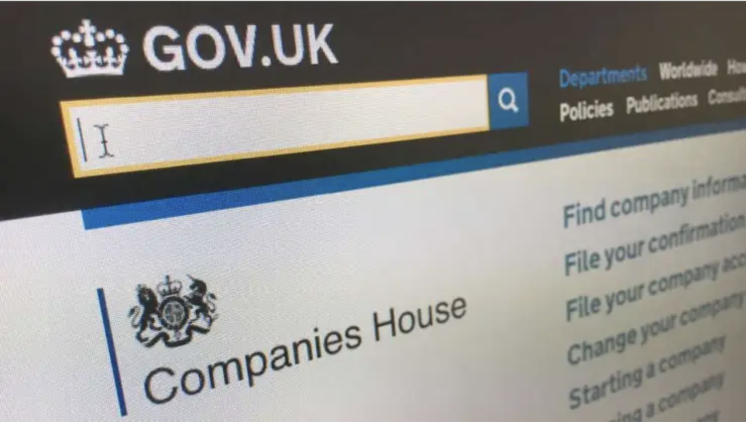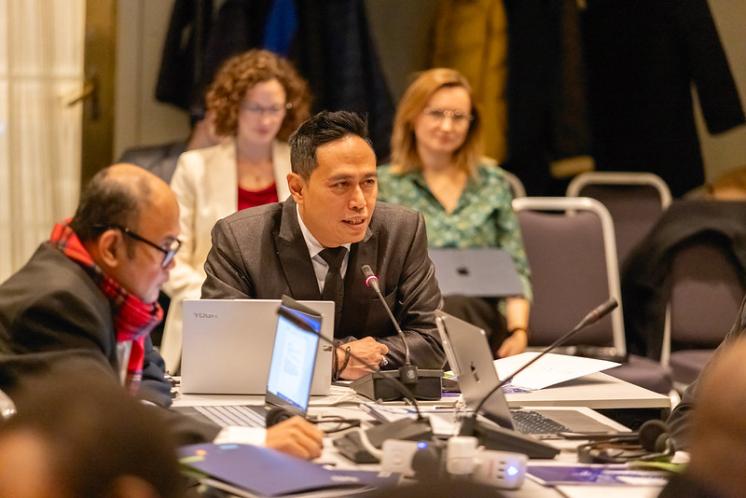
Transparency trends: Taking stock of beneficial ownership disclosures in EITI implementing countries
Beneficial ownership data can mitigate extractive sector corruption by helping to identify conflicts of interest and corrupt practices.
Unveiling the real owners of extractive companies, known as the beneficial owners, is crucial yet challenging. These owners are often kept anonymous, hidden behind a chain of anonymous companies. Opaque company ownership poses risks of corruption and conflicts of interest, particularly in the extractive industries where profits are high, and transparency is key.
The EITI recently conducted a stocktake to evaluate progress on beneficial ownership transparency across its 56 EITI implementing countries. The review focused on aspects critical for implementation of beneficial ownership requirements in the 2023 EITI Standard, including legal frameworks, definitions, thresholds, reporting obligations for politically exposed persons (PEPs), disclosures, public registers and comprehensiveness. Here, we present key findings and highlight innovations from a range of countries.
Key findings from the stocktake
The stocktake reveals notable progress in establishing legal frameworks for beneficial ownership and in establishing thresholds for reporting beneficial owners. Areas that have been more challenging relate to reporting obligations for PEPs and the development of comprehensive and reliable public registers. Here are the main takeaways:
- Legal frameworks: At least 33 (60%) EITI countries have established legal frameworks for beneficial ownership, with another 13 (23%) developing draft frameworks. Establishing the legal basis for disclosures is an essential first step towards building systems to collect and enable access to data and requires many considerations to be balanced, not least those relating to data privacy.
- PEPs: At least 44 (80%) countries have formally defined what constitutes a PEP, but only 32 (60%) include PEPs in their disclosure frameworks. Countries like Armenia, Ghana, and the Kyrgyz Republic require PEPs to disclose beneficial ownership regardless of the size of their stake in a company.
- Thresholds: Fifty (90%) countries have defined ownership thresholds for reporting, meaning that they have established the ownership level at which reporting requirements are triggered. Half have set their threshold at 10% or below, while 16 (less than 30%) have thresholds of 25% or higher, including all members of the European Economic Area. Responding to changes introduced in the 2023 EITI Standard, UK EITI has adjusted its reporting templates to reflect a 10% threshold.
- Disclosure and public registers: At least 38 countries (67%) disclose beneficial ownership information via EITI Reports or online platforms, compared to 31 in 2019. More than half maintain a central or sector-specific register, but only a third of these registers are publicly accessible. In 2019, only 13% of EITI implementing countries had registers available online.
- Comprehensiveness: The scope and detail of disclosed information remain a challenge. Many countries lack comprehensive data or checks for verifying this information, affecting the reliability and usefulness of beneficial ownership as a tool for company screening.
Moving the needle
Progress and best practices
Progress on beneficial ownership transparency is tracked in Validation, the quality assurance mechanism of the EITI. Thus far, the beneficial ownership disclosures of 25 countries have been validated based on the full criteria of the requirements in the 2019 EITI Standard. Validation of requirements in the 2023 EITI Standard will commence in January 2025.
- One country (Armenia) exceeded requirements in the 2019 EITI Standard
- Four countries (Ghana, Mongolia, Nigeria and Trinidad and Tobago) mostly met requirements in the 2019 EITI Standard.
- Twenty countries partly met requirements, indicating room for improvement in legal frameworks and data comprehensiveness and reliability.

Notable country initiatives
As countries move towards implementation of complex but impactful disclosures on beneficial ownership, examples of initiatives in a diverse range of EITI implementing countries have provided useful models:
- Anglophone Africa: Ghana, Liberia, Nigeria and Zambia have pioneered economy-wide public registers in the region.
- Asia and Europe: Armenia, Indonesia, Mongolia, and the United Kingdom have also established economy-wide registers. EITI Philippines and Mongolia have set up platforms for public disclosure of beneficial owners through EITI reporting.
- Francophone Africa: Togo has enacted a decree for the disclosure of beneficial owners through a central register. Côte d'Ivoire and the Democratic Republic of the Congo have set up pilots for the extractives through the EITI process, though the latter’s register is limited to material companies. Senegal has declared it will open its beneficial ownership information on extractive companies to the public.
- Latin America: Colombia has passed legislation to strengthen its framework for collecting beneficial ownership information through the tax authority. Trinidad and Tobago established a pilot through EITI reporting.
Many of these innovations have been supported through technical assistance and guidance delivered as part of the Opening Extractives programme, jointly implemented with Open Ownership.
Linking licence registers
The 2023 EITI Standard encourages linking licence registers to platforms containing beneficial ownership data. While few jurisdictions actively link this information, the next phase of Opening Extractives will support countries like Colombia, Ghana, Indonesia, the Philippines, and Zambia in using beneficial ownership data for licence screening.

Next steps and priorities
Globally, over 120 countries are committed to beneficial ownership reforms. But translating commitment into action remains a challenge. The stocktake has shown that areas where support is most needed include strengthening legal and policy frameworks, the establishment of registers with comprehensive, high-quality and reliable data, and support for implementation of new provisions of the 2023 EITI Standard.
Targeted grants and support, including from USAID, BHPF and EBRD, are being leveraged to support high-quality disclosure and data use through interagency coordination, technical assistance, peer exchange, policy briefs and guidance on legislation and the use of beneficial ownership data for licence screening. Publishing beneficial ownership information is critical for closing corruption channels, enabling effective taxation, fostering fairer markets, encouraging responsible investment and managing business risk. As the energy transition accelerates, addressing these issues will remain paramount.




